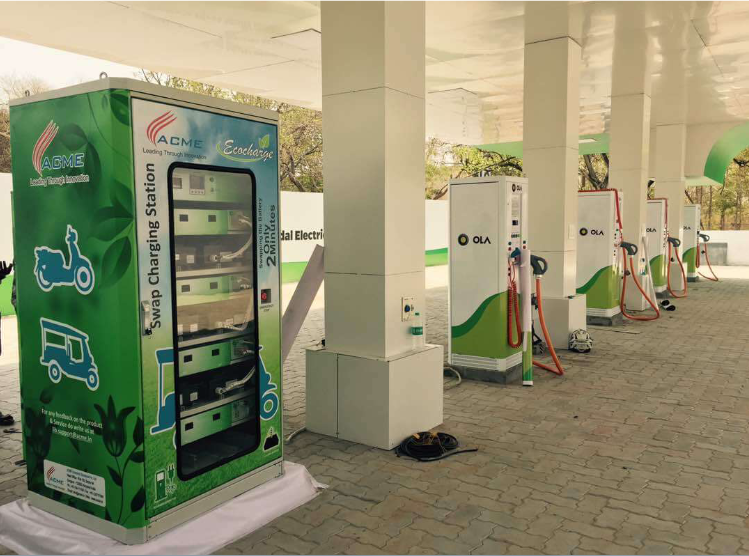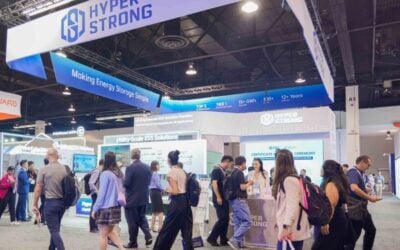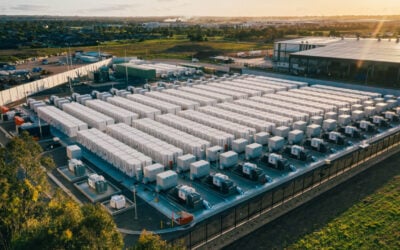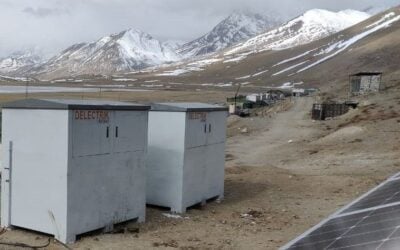
Recommendations made to the government of India as it prepares to publish its annual union budget, from industry group India Energy Storage Alliance (IESA) include measures to support both the upstream of industry and the downstream of clean energy deployment.
Finance Minister Nirmala Sitharaman will announce the next budget at the beginning of February. IESA emailed Energy-Storage.news today with some recommendations that Dr Rahul Walawalkar has made regarding four key areas impacting on the present and future prospects for deployment of batteries. A recent report from IESA in December forecast 6.1% compound annual growth in the market through 2026.
Here are the recommendations and our brief explanations of where each sits in the bigger picture as observed in recent times:
-On reducing the GST (General Sales Tax) applicable to lithium-ion batteries
Try Premium for just $1
- Full premium access for the first month at only $1
- Converts to an annual rate after 30 days unless cancelled
- Cancel anytime during the trial period
Premium Benefits
- Expert industry analysis and interviews
- Digital access to PV Tech Power journal
- Exclusive event discounts
Or get the full Premium subscription right away
Or continue reading this article for free
Dr Walwalkar has asked for the creation of a “level playing field” in GST for standalone energy storage technologies to match the strong support given to the electric vehicle (EV) and solar-plus-storage sectors in the present budget – which runs until 31 March this year.
EV duties for GST were cut from 12% to 5% in the previous budget, while batteries – if installed together with solar – also enjoy the 5% discounted rate. However, in common with some policies in the US, energy storage batteries installed without solar are still subject to an 18% rate of GST.
IESA requests the “Honorable Finance Ministry to consider allowing stationary energy storage systems used in hybrid projects to avail the 5% GST allowed for renewable energy devices,” which includes equipment such as battery management systems (BMS) and power converters.
-Support for specific lithium-ion battery manufacturing aims
Dr Walawalkar and IESA have long been strong advocates for supporting lithium battery manufacturing in India, especially at the sorts of gigafactory scales seen already in some markets (such as the US and China) and expected to come in others soon (including Europe).
The IESA president asked that NITI Aayog’s manufacturing plan be supported with a cell level subsidy per kilowatt-hour. This would also support the central government’s Make in India policy long term, Dr Walawalkar argues. From a minimum of 5GWh capacity to 20GWh capacity and 50GWh cumulatively, IESA believes that appropriate government funds will be required to make this happen in time to gain maximum benefit for the country.
-Funding for R&D
Similarly, Dr Walawalkar said that research and development in energy storage, not just for lithium-ion but for a variety of technologies and their applications including flow batteries, sodium-based batteries and zinc-air batteries, would greatly benefit from support in the form of government funding.
Various government programmes could help the likes of India’s National Laboratories and other institutions in these aims, with many already expressing an interest in developing and researching these technologies.
-Effective tax measures to support private purchases of equipment and solutions
Finally, IESA requests that consideration be made for creating a subsidy, similar to that recently applied to EV sales, where a modest reduction in income tax can be given to homeowners of IR2.5 lakh (US$3,500) on loans for purchases.
Rooftop solar-plus-storage can “fast-track” the adoption of behind-the-meter energy storage technologies, Dr Walawalkar finished.





